![Carl, Rudiger Inc.: King Alcohol (New Version) [2 CDs] (Corbett vs. Dempsey) Carl, Rudiger Inc.: King Alcohol (New Version) [2 CDs] (Corbett vs. Dempsey)](https://www.teuthida.com/productImages/misc4/24545.jpg)
The debut album of Rudiger Carl is an assertive studio session of brilliant free jazz from 1972, with Carl on tenor saxophone, Gunter Christmann on trombone, and Detlef Schonenberg on drums, presenting a great example of early European Free Improv, remastered from the original tapes and issued on CD for the first time, with a 2nd CD of previously unreleased bonus tracks.
In Stock
Quantity in Basket: None
Log In to use our Wish List
Shipping Weight: 3.00 units
EU & UK Customers:
Discogs.com can handle your VAT payments
So please order through Discogs
Sample The Album:
Rudiger Carl-tenor saxophone
Gunter Christmann-trombone
Detlef Schonenberg-drums
Click an artist name above to see in-stock items for that artist.
UPC: B072ZJ6G5S
Label: Corbett vs. Dempsey
Catalog ID: CvsD032/FMP060
Squidco Product Code: 24545
Format: 2 CDs
Condition: New
Released: 2017
Country: USA
Packaging: Cardboard Gatefold
Recorded live at the Akademie der Kunste in Berlin, Germany, on January 12th, 1972.
"Recorded for the German FMP label in 1972, this is one of the landmark recordings of free jazz in Europe, a mind-blowing studio session featuring Carl on tenor saxophone, Günter Christmann on trombone, and the astonishing Detlef Schonenberg on drums. Volatile and precise, anticipating much of the future sound of free music in Europe but also paying homage to American antecedents like Roswell Rudd and Archie Shepp, King Alcohol is truly a lost jewel. This is its first time on CD, remastered from the original tapes, and featuring a full disc of newly discovered, previously unreleased bonus tracks. Reproducing the insanely rare first-pressing cover with its black and white line drawing by Carl himself."-Corbett vs. Dempsey
"Hitting the sauce has long been a prevalent part of the human condition. From knocking back cold ones at the corner bar to savoring the sense-titillating pleasures of a bank-breaking 50-year single malt scotch, intoxicants have been a cornerstone of our species' customs of consumption for ages. German improviser Rüdiger Carl paid homage to this propensity in 1972 with King Alcohol, an inimitable debut that threw caution and propriety to wind with a sleeve-printed dedication to "all drinker friends and enemies + to all dead musicians." The music ensconced on the album is similarly averse to conventional decorum and doctrine, comprising four originals, the last parsed into medley form, that find Carl and his countrymen Günter Christmann and Detlef Schönenberg pushing their instruments and each other to the limits.
For this reissue, producer John Corbett dispenses with any new accompanying written context preferring instead to present the original album along with a second disc stocked close-to-capacity with seven more unreleased tracks that are near on-par in a facsimile of its initial gate-fold vinyl incarnation. It's a beautifully spare package containing period photos of all three musicians and Carl's original bare bones graphic design. Recorded in spacious studio surroundings and given a refurbishing scrub for this new edition the trio's broad dynamics are cleanly preserved. The title piece serves as a salutary gesture as first Christmann and Schönenberg joust and then Carl has the floor to himself for a brief solo that feeds off natural spatial echo. A vigorous wrestling match between tenor, trombone and drums ensues and the piece caps as it began in a colloquy between loquacious brass and rigorously struck objects.
"Thrombose" fills the remainder of the original album's A-side with another bustling conference of colliding and eliding musical constituents. The tight, responsive weave between Carl and Christmann vaguely resembles the sort of contrapuntal simpatico generated by the American counterparts Archie Shepp and Roswell Rudd a half-decade earlier. Schönenberg's tumbling peripheral percussion-enhanced beats bridge free jazz with the still nascent European free improv precedents and the drummer's vowel-referencing "AEIOU" boils the fermenting tripartite energy down into even more concentrated forms. A thematic line from each player builds the concluding medley into a rollicking, free-associative assault. Perhaps what's most striking about this music today is how much was birthed from it in the subsequent decades by admirers and dissidents alike. That's reason enough to raise collective libations in celebration of its return to circulation. Teetotalers and timid listeners need not apply."-Derek Taylor, Dusted Reviews
Get additional information at Dusted Magazine
Artist Biographies
• Show Bio for Rudiger Carl "Rüdiger Carl, Born 1944, Goldap (East Prussia); accordion, saxophone, clarinet, arranger, composer. Rüdiger Carl has been involved in improvised music from 1968, recording his first record in January 1972 and then playing with a wide range of musicians including Arjen Gorter, Makaya Ntshoko, Louis Moholo, Maarten van Regteren Altena, Tristan Honsinger, Johnny Dyani and Han Bennink. His long-standing partnership with Irene Schweizer began in 1973 and continues to the present day and for a three year period, from 1973 to 1976 he was also a member of Globe Unity Orchestra. He began to give solo performances in 1977 and in 1978 started two other long-term professional partnerships, with Sven-Åke Johansson and Hans Reichel. All three musicians were members of the Bergisch-Brandenburgisches Quartett (the fourth member being Ernst-Ludwig Petrowsky) and they have both appeared in duos with Carl, Carl and Johansson are members of the 'Swing Dance Band' (with Alexander von Schlippenbach and Jay Oliver), Carl and Reichel have been members of the September Band since 1993, and the trio of Carl/Reichel/Johansson has itself been performing since 1994 (see below). Rüdiger Carl has probably made the most striking change in improvised music, virtually forsaking the quintessentially jazz instrument - the tenor saxophone - and taking up one with totally different associations and means of expression: the accordion. This was manifest in recordings on Buben, his duets with Hans Reichel, and though he continued to play the two instruments virtually side-by-side ( in addition to clarinet), the - what some might deem to be drastic - move was completed and cemented on Vorn which even featured a version of Paul McCartney's Those were the days. Following this recording, the COWWS Quintet was formed, continuing Carl's musical relationship with Schweizer and adding Philipp Wachsmann, Jay Oliver and Stephen Wittwer. While quite varied moods are apparent from the recorded output of the group, the lasting impression is one of folk and song influences, emphasised by Carl's accordion. With the death of Oliver in 1993, the bass chair was taken by Barre Phillips for approximately one year and then by Arjen Gorter. Rüdiger Carl has continued to work with other musicians in addition to COWWS. Thus, the Canvas Trio was formed in 1991 with Joëlle Léandre and Carlos Zingaro, and in the same year he played in duos with Mayo Thompson of the Red Crayolas (who contributed to the second COWWS record) and Joëlle Léandre. From 1988 to 1992 he was concert organiser of 'Musik im Portikus' in Frankfurt/M. and from 1994 has been leader of the F.I.M. Orchester in Frankfurt/M. His most recent involvements have been in an occasional duo with Burkhard Kunkel, zither and in the ironic electronics trio Blank with Oliver Augst and Christoph Korn. Over a three-year period Blank worked with American painter and poet Raymond Pettibon, initially at the Philharmonie in Cologne (released on GROB) and later documented in the hörspiel Long live the people of the revolution, released on Eventuell." ^ Hide Bio for Rudiger Carl • Show Bio for Gunter Christmann "Born 1942; trombone, cello, film. Günter Christmann has been working since 1968 as a free-lance musician specialising in improvised musics - particularly free improvisation - and their links with other art forms. In the late 1960s and throughout the 1970s, he was primarily known for his trombone (and less frequent double bass) playing in a variety of groupings: Rüdiger Carl group (1969-1972); Peter Kowald Quintett (1972-1974); a duo with Detlef Schönenberg (1972-1982) which itself included many collaborations - for example with the electronics player Harald Bojé - as a member of the Globe Unity Orchestra from 1973 onwards; and in duo with Tristan Honsinger (1978-1981). In the mid-1970s Christmann also began exploring the possibilities of solo playing, sometimes including electro-acoustic manipulations and montage techniques. Since 1980 Günter Christmann has played regularly with Paul Lovens - for example, in the excellent (and recorded) trio with Maarten Altena, in duo, and in trio with Mats Gustafsson - in duo with bass player Torsten Müller (generally under the name of their recording, Carte blanche, as a member of King Übü Orchestrü (1987-1994), and in duo with Alexander Frangenheim. He also started to feature cello in his playing, not as a second instrument to trombone but as an equal. From 1979 Günter Christmann has been interested in working with different combinations of improvisers from an international pool, often combining musicians with dancers, actors and acrobats. These groupings have gone under the generic name of VARIO (now up to VARIO 35), with many combinations having been documented on LP and CD (see list below). VARIO concerts have included: Langenhagen Jazz 1979/1981/1983; Moers 1981/1983; Actual London 1981; Pisa 1982; Osnabrück 1982; Utrecht 1982; a tour of South and Central America in 1983 (Mexico, Columbia, Dominican Republic, Peru, Chile, Argentina, Uruguay, Brazil); Zürich 1984; Hannover 1985; Bremen 1985; Paris 1992; Hannover 1993; Den Haag 1994; Stuttgart 1995; Nickelsdorff 1998; Hannover 1998. Artists who have participated in VARIO formations include: Maarten Altena; Regina Baumgart (dancer); Steve Beresford; Udo Blickensdorf (acrobat); Lindsay Cooper; Axel Dörner; Katie Duck; Alexander Frangenheim; Wolfgang Fuchs; Mats Gustafsson; Andy Geer (pantomime); Gerd Gläsmer (drums); Michael Griener (percussion); Ulrich Gumpert; Bernd Halleck (actor); Shelley Hirsch; Tristan Honsinger; Guus Janssen; Sven-Åke Johannson; Theo Joling (clown); Peter Kowald; Gyde Knebusch (harp); Thomas Lehn; Paul Lovens; Rudi Mahall (bass clarinet); Radu Malfatti; Phil Minton; Torsten Müller; Christian Munthe; Maggie Nicols; Evan Parker; Melvyn Poore; Jon Rose; John Russell; Jo Sachse; Wolfgang Schliemdun (percussion); Detlef Schönenberg; Irène Schweizer; Günter Sommer; LaDonna Smith; Mariano Suarez (trumpet); Martin Theurer; Roger Turner; Peter van Bergen; Davey Williams; Stephan Wittwer. Even outside VARIO, Christmann has longstanding interests in bringing together similar-minded artists from a variety of disciplines. This started in 1974 through a collaboration with dancer/choreographer Pina Bausch and was later continued with Elisabeth Clark and Regina Baumgart. These early experiments led to his interest in film, particularly the relationship between improvising musicians and experimental film-makers; his current work in this area goes under the banner Deja-vu, being a sequence of music-theatre scenes in which live music, acting, films and sound collage are brought together. At its centre is the playing musician who works both with and against the film and whose relationship with the situation on stage in constantly changing. Advantages are taken of the ability of film to snatch up, to double and enlarge, and to fragment what would otherwise be a traditional relationship between action, scenery and person. This results in an interchange and transformation of themes, properties and associations, and movement between illusion and reality. The films are by Günter Christmann, music is provided by Christmann and Michael Griener, and technical assistance is provided by Elke Schipper." ^ Hide Bio for Gunter Christmann • Show Bio for Detlef Schonenberg "Detlef Schönenberg (* 1944 in Berlin ) is a German author who was first known as a drummer of Free Jazz. Schönenberg grew up in Bochum, played drums in Paris around 1965, and has lived in Wuppertal since 1970, playing with musicians like Bernd Köppen and then performing in the trio of Rüdiger Carl. Between 1972 and 1981 he worked in the duo with Günter Christmann, who worked partly with Pina Bausch. He continued to work with new musicians such as Harald Bojé (album 1975, trio performance with Christmann at the Moers Festival in 1978) and increasingly focused on the meditative-sound component of the drumming. He was also active as a freelance musician, instrument developer (for the company WS Percussion he co-founded) and drummer teacher. From 1974 to 1977 he directed the "Schlagschule Wuppertal". As a solomoniker, Schönenberg set standards but renounced the game after a spiritual experience in 1982. His three-drum school "The drums. A Way to Music "was published by Moeck (the still planned volumes 4 and 5, which were devoted to the improvisation and the free soliloquies, were not written). From 1981 to 1984 he was instructed by John Pierrakos in Core Energetic. He then founded his own school. Until 2000, he headed a "training as a helper for spiritual growth" in his "Center for Self-Transformation" in Wuppertal; He was also a priest of the Universal Church until his resignation in 2001. As a seminar leader, he has been working with the author Jutta Belle since 2006." ^ Hide Bio for Detlef Schonenberg
11/20/2024
Have a better biography or biography source? Please Contact Us so that we can update this biography.
11/20/2024
Have a better biography or biography source? Please Contact Us so that we can update this biography.
11/20/2024
Have a better biography or biography source? Please Contact Us so that we can update this biography.
Track Listing:
SIDE A
1. King Alcohol 11:43
2. Thrombose 8:24
3. Aeiou 6:12
4. Rush-Hour / Something / Triotrip 13:09
SIDE B
1. KA Alt #1 9:33
2. KA Alt #2 12:24
3. KA Alt #3 11:19
4. KA Alt #4 6:40
5. KA Alt #5 4:28
6. KA Alt #6 9:56
7. KA Alt #7 15:59
Improvised Music
Jazz
Free Improvisation
European Improvisation and Experimental Forms
Jazz Reissues
Trio Recordings
Staff Picks & Recommended Items
Search for other titles on the label:
Corbett vs. Dempsey.


![Carl, Rudiger Inc.: King Alcohol (New Version) [2 CDs] (Corbett vs. Dempsey) Carl, Rudiger Inc.: King Alcohol (New Version) [2 CDs] (Corbett vs. Dempsey)](https://www.teuthida.com/productImages/full/24545.Full.jpg)
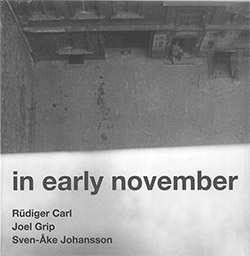
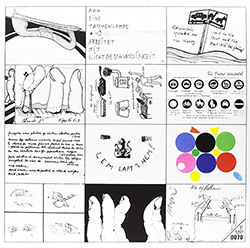
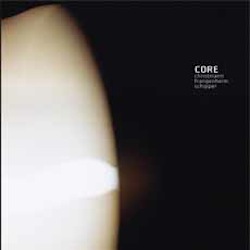
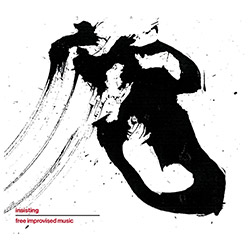
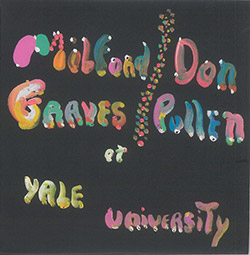
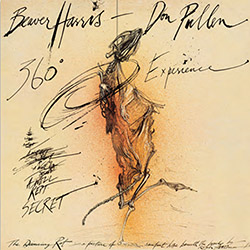

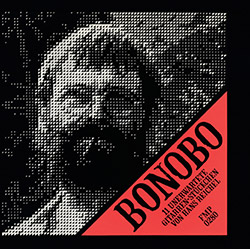


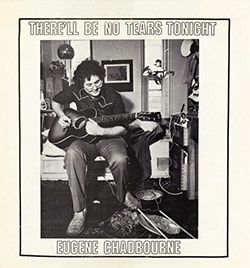
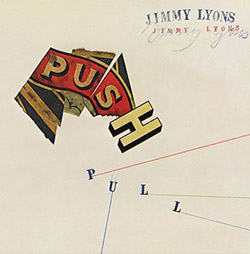
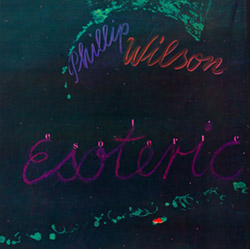
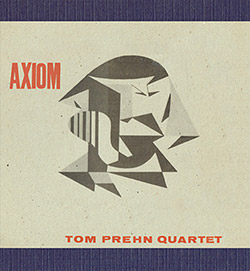


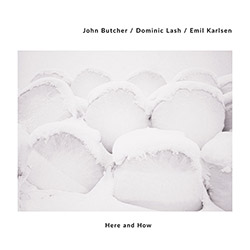
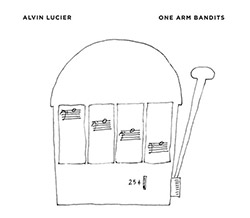

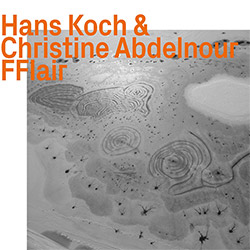

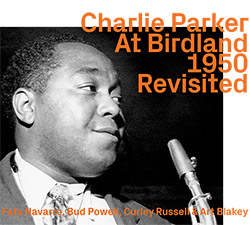

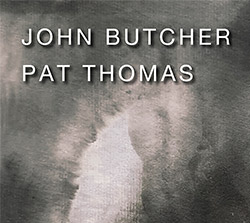
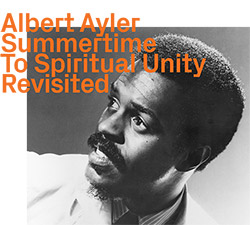
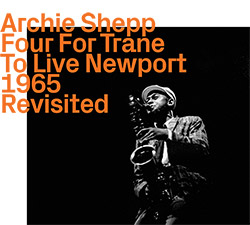


![Guy, Barry / Ken Vandermark: Occasional Poems [2 CDs]](https://www.teuthida.com/productImages/misc4/34849.jpg)
![Novoa / Carter / Mela Trio: Vol.1 [VINYL]](https://www.teuthida.com/productImages/misc4/35236.jpg)


![Elephant9 : Mythical River [VINYL]](https://www.teuthida.com/productImages/misc4/34624.jpg)
![Evans, Peter (Evans / Eldh / Black): Extra [VINYL]](https://www.teuthida.com/productImages/misc4/35279.jpg)

![McPhee, Joe: Straight Up, Without Wings [BOOK]](https://www.teuthida.com/productImages/misc4/35454.jpg)
![Jeck, Philip: rpm [2 CDs]](https://www.teuthida.com/productImages/misc4/35455.jpg)













![Barker / Parker / Irabagon: Bakunawa [VINYL]](https://www.teuthida.com/productImages/misc4/35533.jpg)
![Blaser, Samuel / Marc Ducret / Peter Bruun: Dark Was The Night, Cold Was The Ground [VINYL 10-inch]](https://www.teuthida.com/productImages/misc4/35492.jpg)








![Warren, Kenny (Warren / Hoffman / Ellman): Sweet World [VINYL]](https://www.teuthida.com/productImages/misc4/35451.jpg)




![Blake, Ran / Dave Knife Fabris: Live Amsterdam 2006, First Visit [CD + POSTCARDS]](https://www.teuthida.com/productImages/misc4/35275.jpg)













![DNS: Taking Big Bites Of The Khandas Three Cafes Deep [2 CDs]](https://www.teuthida.com/productImages/misc4/35334.jpg)




![Cleaver, Gerald: The Process [VINYL]](https://www.teuthida.com/productImages/misc4/34966.jpg)




![Alva Noto: HYbr:ID II [VINYL 2 LPs]](https://www.teuthida.com/productImages/misc4/35201.jpg)

![Baron, Derek / Luke Martin: Distinct and Concealed [CASSETTE + DOWNLOAD]](https://www.teuthida.com/productImages/misc4/35079.jpg)

![Lyle, Erica Dawn : Colonial Motels [CASSETTE + DOWNLOAD]](https://www.teuthida.com/productImages/misc4/35080.jpg)









![Sanna, Claudio: Compositori Sardi Contemporanei II [2 CDs]](https://www.teuthida.com/productImages/misc4/35317.jpg)







![Zurria, Manuel: Fame di Vento [3 CDs]](https://www.teuthida.com/productImages/misc4/35167.jpg)

![Granberg, Magnus / Nattens Inbrott / Skogen: Holde Traume, Kehret Wieder! [2 CDs]](https://www.teuthida.com/productImages/misc4/35038.jpg)
![Frey, Jurg: Outermost Melodie [2 CDs]](https://www.teuthida.com/productImages/misc4/35039.jpg)

![Pavone, Jessica: Reverse Bloom [VINYL]](https://www.teuthida.com/productImages/misc4/34895.jpg)




![Modney (Modney / Wooley / Gentile / Roberts / Pluta / Symthe / ...): Ascending Primes [2 CDs]](https://www.teuthida.com/productImages/misc4/34852.jpg)









![Elephant9 with Terje Rypdal: Catching Fire [VINYL 2 LPs]](https://www.teuthida.com/productImages/misc4/35355.jpg)
![Deerlady (Obomsawin, Mali / Magdalena Abrego): Greatest Hits [VINYL]](https://www.teuthida.com/productImages/misc4/34876.jpg)




![Haino, Keiji: Black Blues [2 CDs]](https://www.teuthida.com/productImages/misc4/35109.jpg)



![Surplus 1980: Illusion of Consistency [CD]](https://www.teuthida.com/productImages/misc4/35069.jpg)
![Staiano, Moe: Away Towards the Light [VINYL + DOWNLOAD]](https://www.teuthida.com/productImages/misc4/35037.jpg)



![Caveira (Gomes / Sousa / Abras / Ferrandini): Ficar Vivo [VINYL]](https://www.teuthida.com/productImages/misc4/34643.jpg)
![Gregg, J. J. / David Van Auken: Lunar Prairie [CD w/ DOWNLOAD]](https://www.teuthida.com/productImages/misc4/34611.jpg)

![Coultrain: Mundus [VINYL]](https://www.teuthida.com/productImages/misc4/32439.jpg)
![Mattin: Songbook #6 [VINYL]](https://www.teuthida.com/productImages/misc4/27317.jpg)
![Punkappella: Wake Up [7-inch VINYL]](https://www.teuthida.com/productImages/misc4/17519.jpg)
![Residents, The: WARNING: UNiNC.: Live And Experimental Recordings 1971-1972 [VINYL 2 LPs]](https://www.teuthida.com/productImages/misc4/31521.jpg)
![Coultrain: Phantasmagoria [VINYL]](https://www.teuthida.com/productImages/misc4/30142.jpg)
![Lennon, Sean Ono: Asterisms [VINYL]](https://www.teuthida.com/productImages/misc4/34517.jpg)

![Coley, Byron: Dating Tips for Touring Bands [VINYL]](https://www.teuthida.com/productImages/misc4/17906.jpg)

![Lost Kisses: My Life is Sad & Funny [DVD]](https://www.teuthida.com/productImages/misc4/lostKissesDVD.jpg)